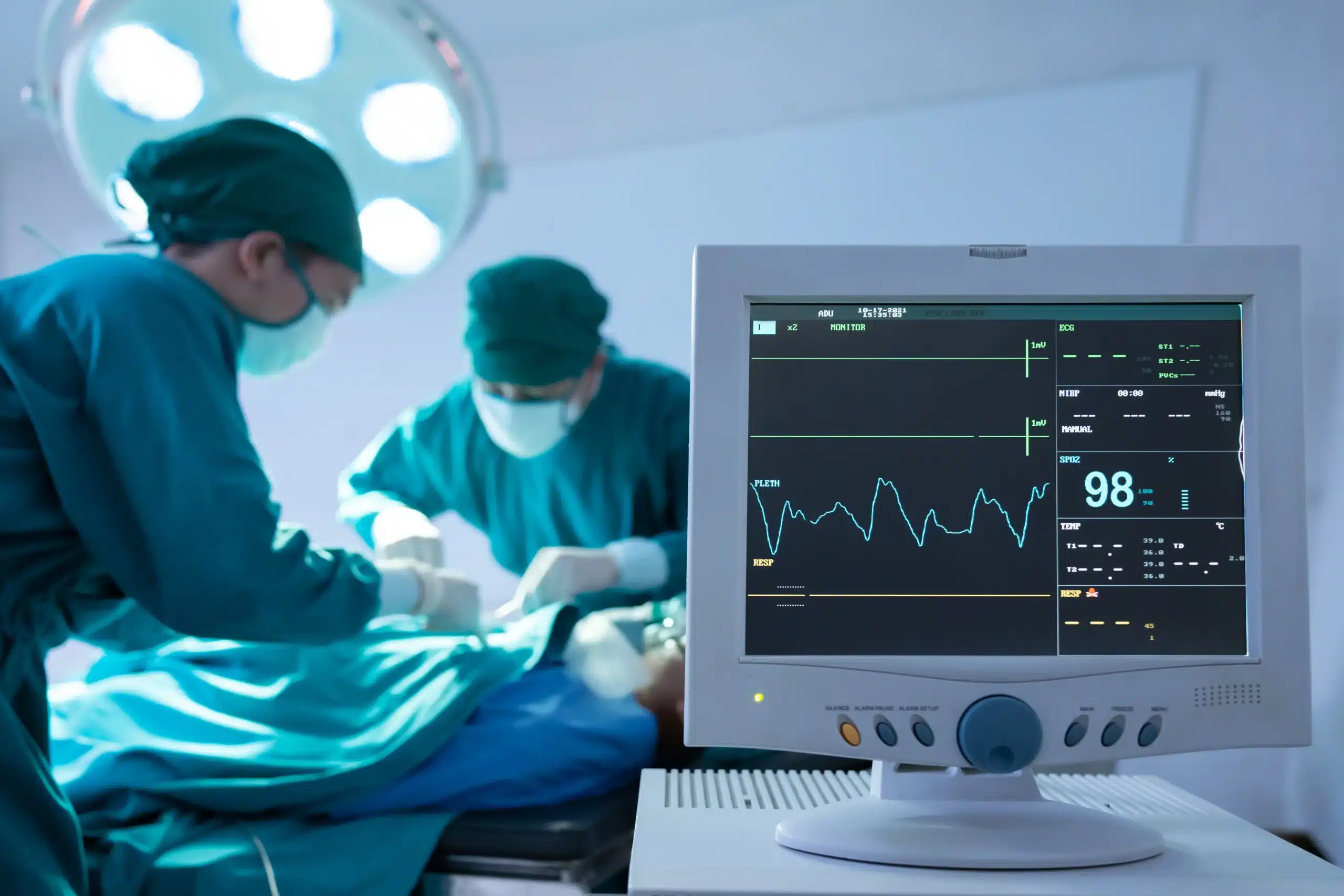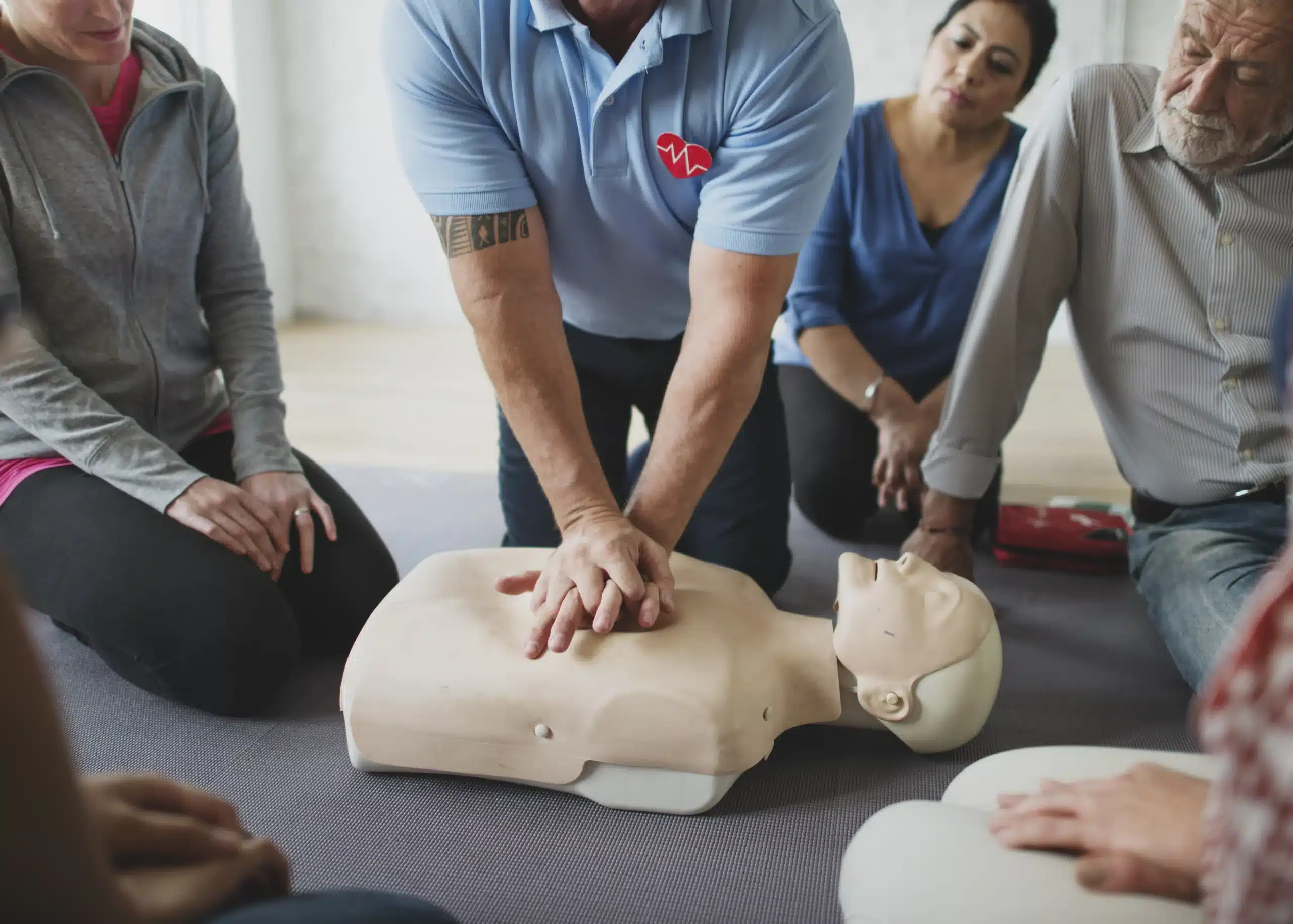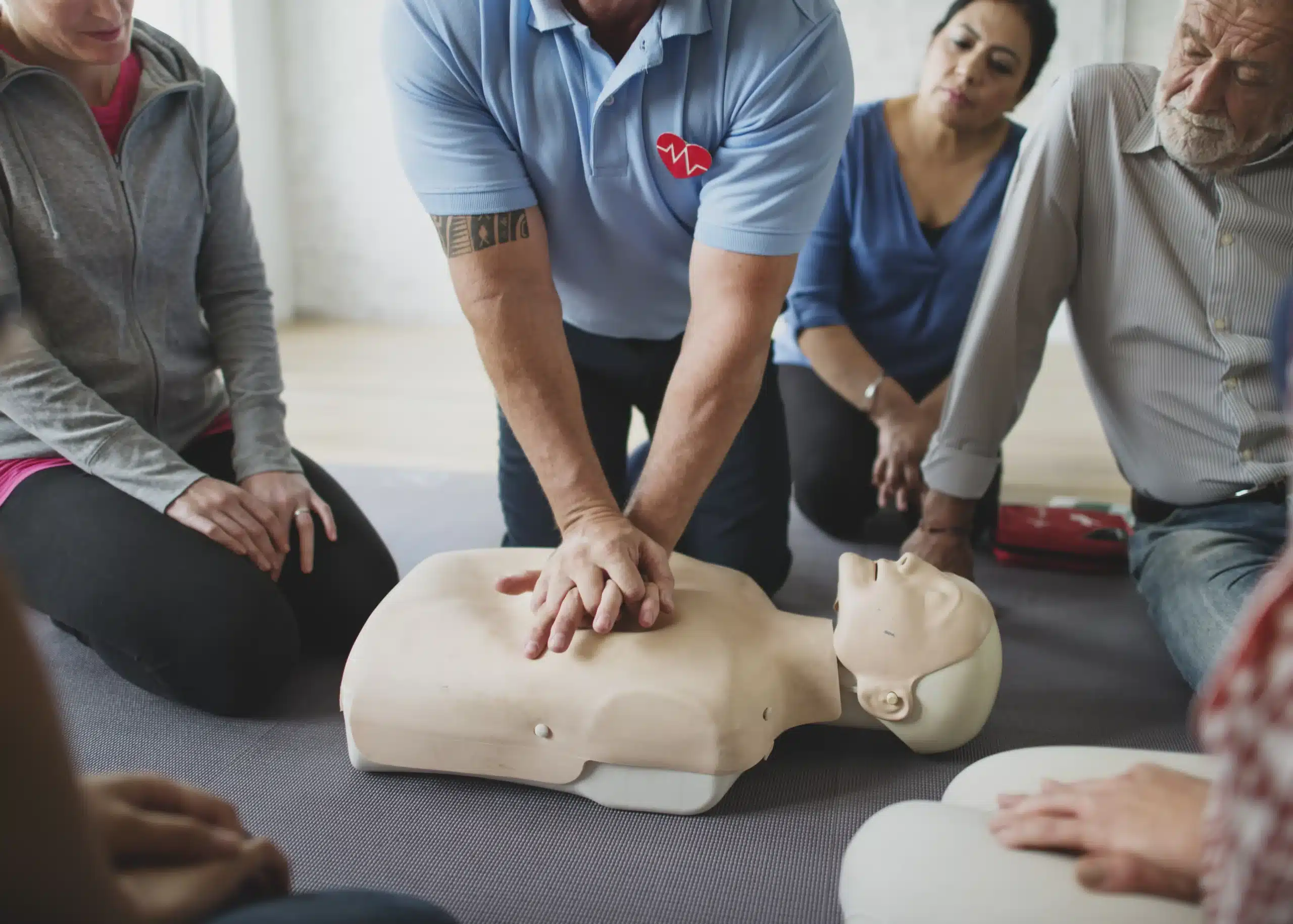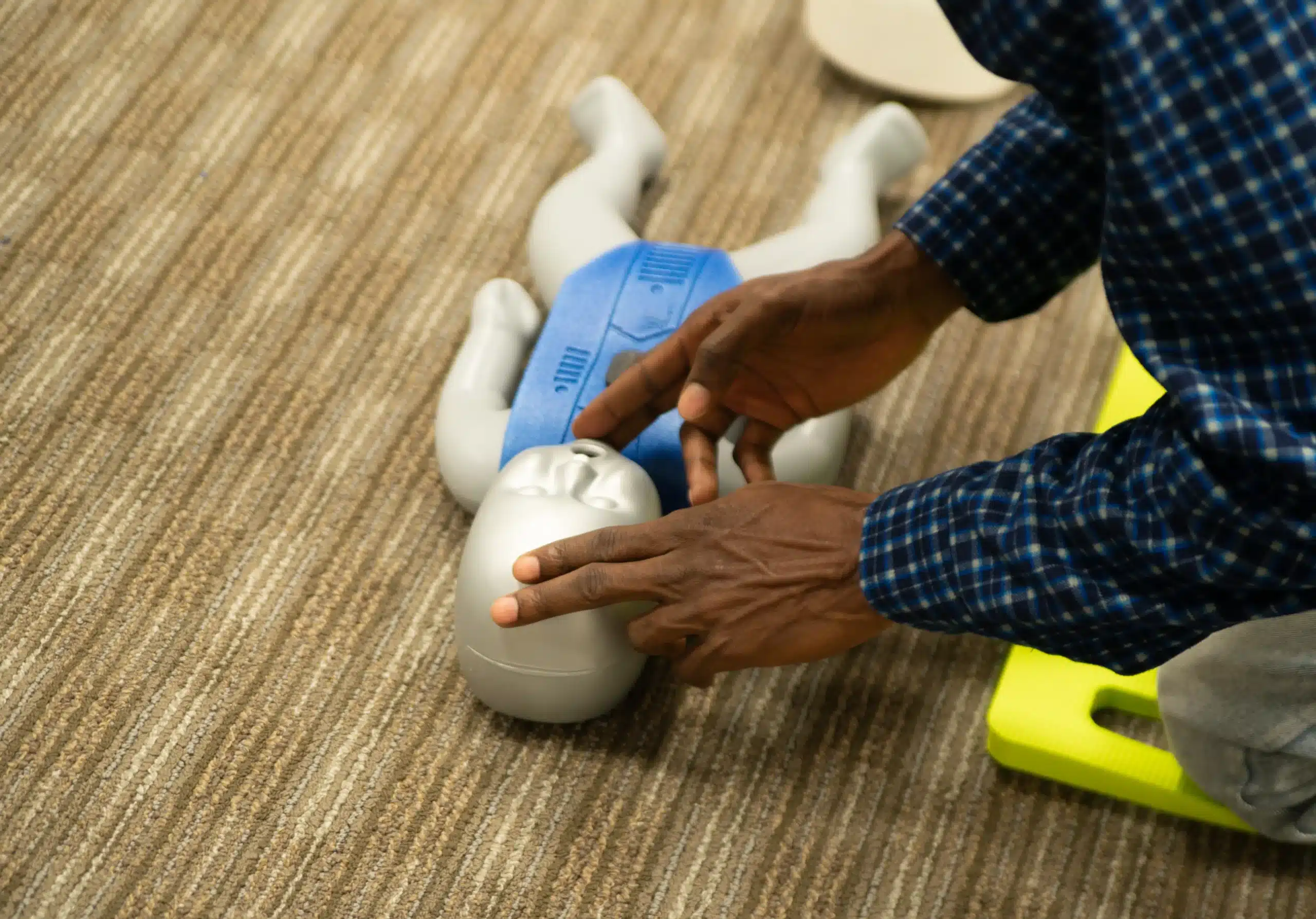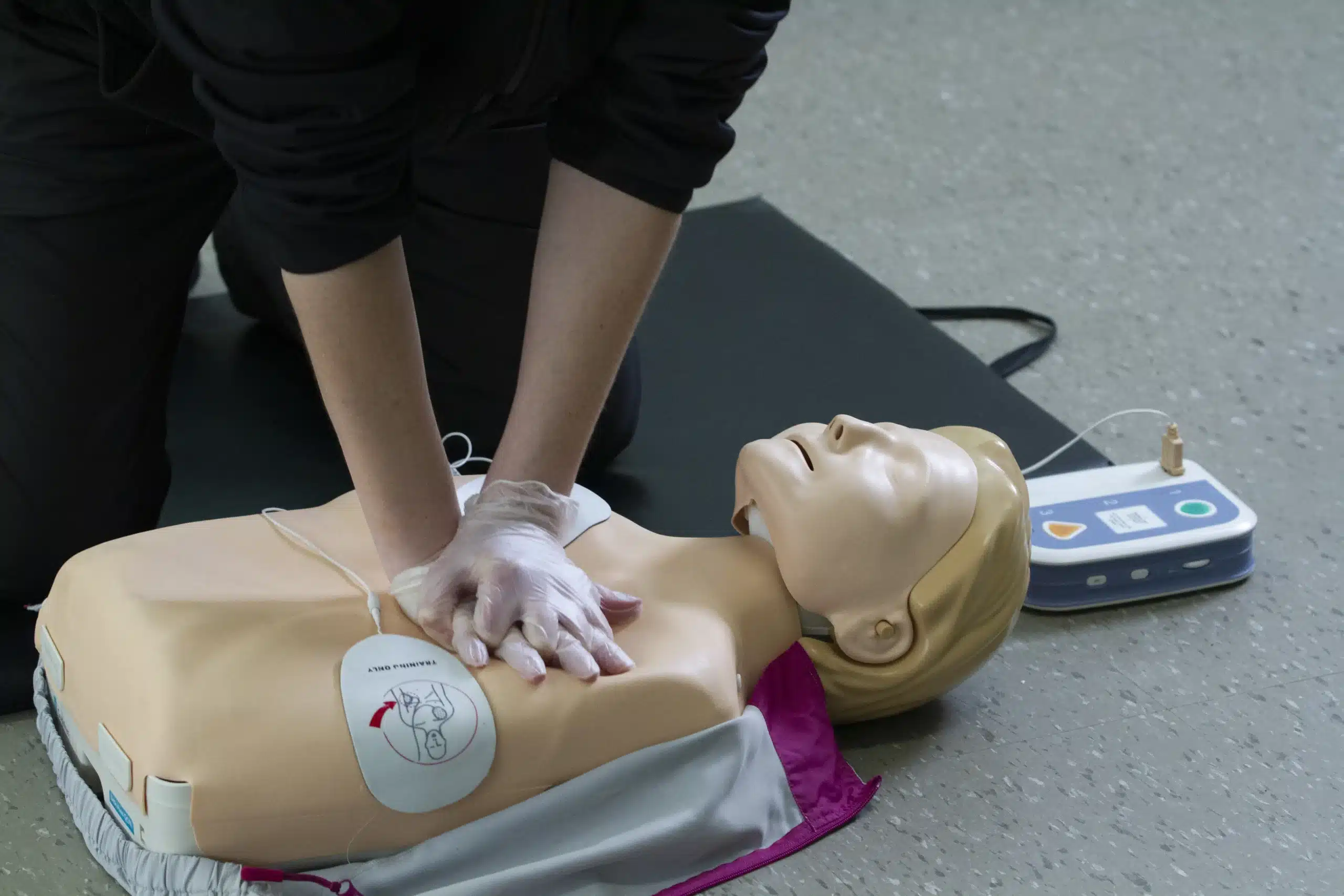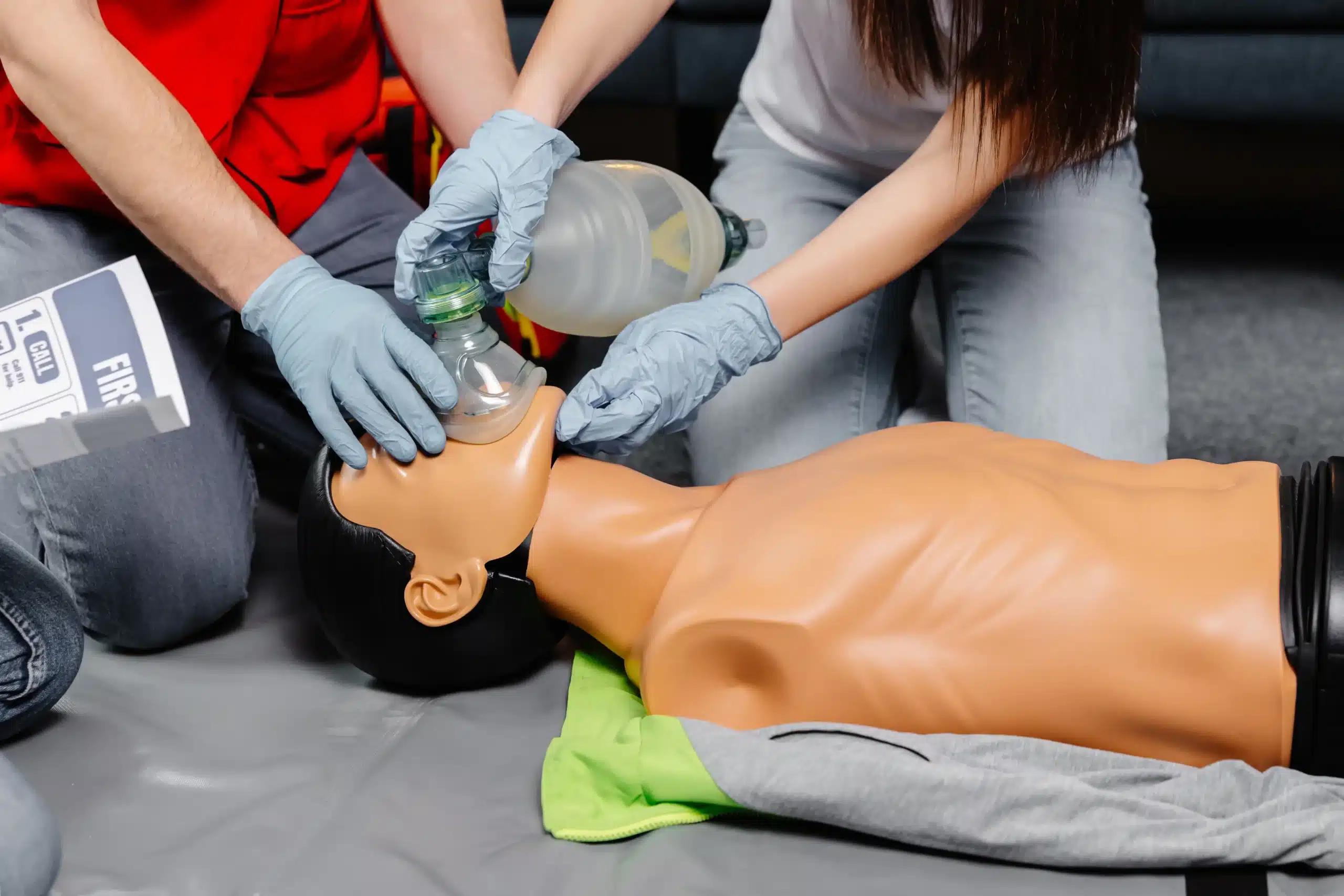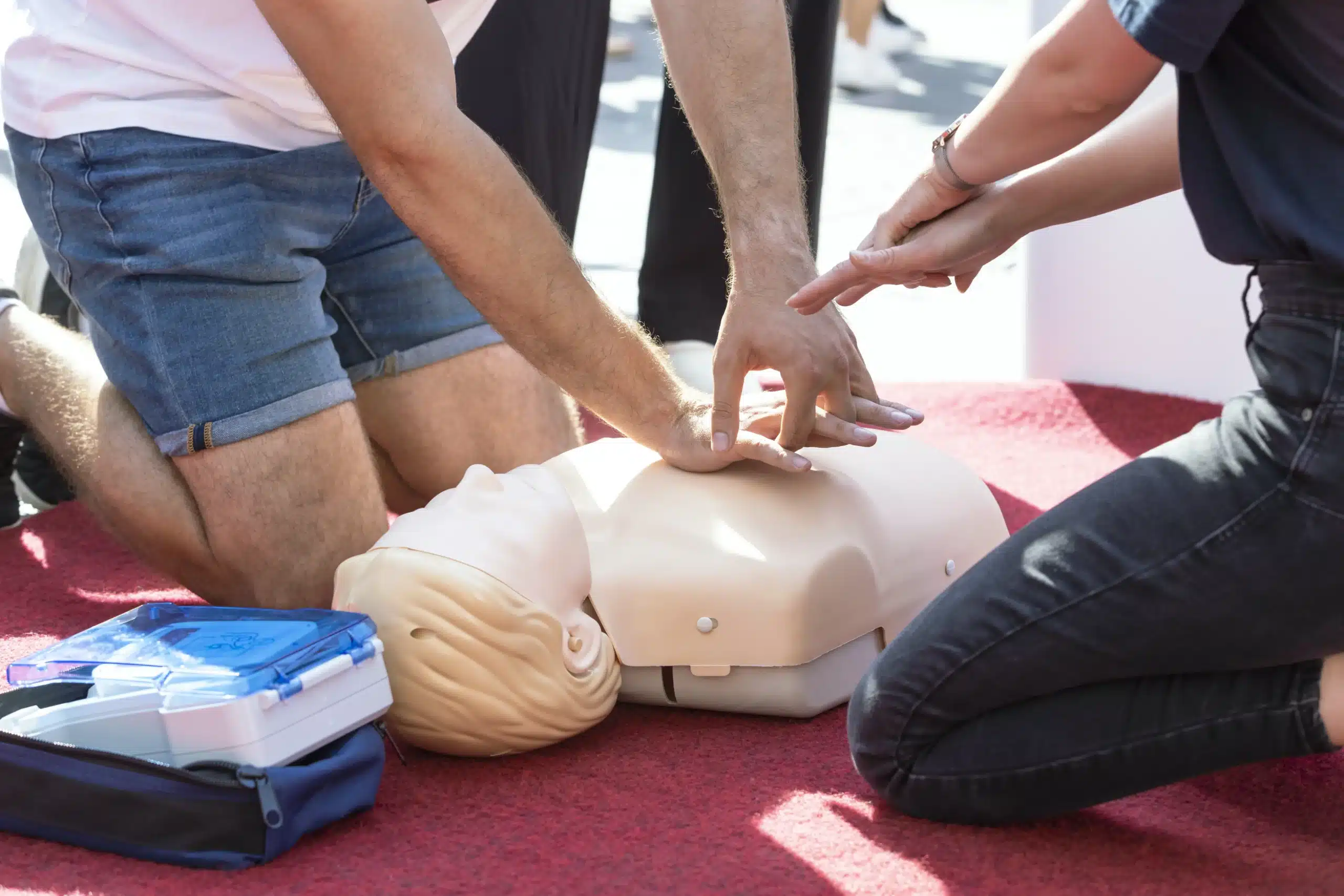Working in healthcare, you understand the critical importance of preparedness, especially when facing life-threatening situations. When a cardiac emergency strikes, every second counts. Advanced Cardiovascular Life Support (ACLS) empowers healthcare professionals with the knowledge and skills to respond effectively, potentially saving lives. This comprehensive training covers a range of critical interventions, from airway management to rhythm recognition. If you’re a healthcare provider in Campbell seeking to enhance your expertise, this guide will help you find the right acls courses in Campbell. We’ll explore the benefits of ACLS certification, discuss course content, and provide practical tips for choosing a course and preparing for success.
Key Takeaways
- ACLS is essential for advanced cardiac care: It provides healthcare professionals with the knowledge and skills to manage complex cardiovascular emergencies, leading to improved patient outcomes.
- Choose the right ACLS course: Consider factors like accreditation, instructor qualifications, and course format to ensure the training aligns with your needs and learning style. Ask about the course objectives, outcomes, and costs before enrolling.
- Stay current with your skills: Maintain your ACLS certification through recertification courses and continuing education to stay up-to-date with the latest advancements in cardiovascular care.
What is ACLS?
ACLS stands for Advanced Cardiovascular Life Support. It’s a set of guidelines and protocols designed to help healthcare professionals manage cardiac emergencies. These emergencies can range from recognizing and treating cardiac arrest to dealing with strokes and other life-threatening conditions. The ACLS protocols emphasize high-quality CPR, clear communication, and teamwork during resuscitation—all crucial for positive patient outcomes. ACLS certification demonstrates a commitment to providing excellent care and improving survival rates in these critical situations. If you’re a healthcare provider wanting to improve your skills in managing cardiovascular emergencies, understanding and obtaining ACLS certification is essential.
Who Needs ACLS Certification?
What is ACLS?
ACLS stands for Advanced Cardiovascular Life Support. It’s a comprehensive set of guidelines and skills designed to manage and treat life-threatening cardiovascular emergencies. ACLS certification shows you have the knowledge and skills to provide high-quality care during these critical situations. This training covers everything from recognizing and managing cardiac arrest to understanding post-arrest care. It emphasizes teamwork, effective communication, and practical application of advanced life-saving techniques. For more information, check out this helpful resource on what ACLS certification is.
Who Should Get Certified?
ACLS certification is primarily for healthcare professionals regularly involved in managing cardiovascular emergencies or who are part of resuscitation teams. This includes physicians, nurses, paramedics, respiratory therapists, and other specialized healthcare providers. Earning your ACLS certification can significantly advance your healthcare career.
While these roles most commonly require ACLS certification, other professionals may also benefit from this training. Those working in intensive care units, emergency rooms, and other critical care settings may find it particularly useful. Having this certification demonstrates a commitment to patient safety and can create opportunities for career growth. Learn more about the benefits of ACLS certification. If you’re looking to enhance your skills and contribute to a highly effective medical team, ACLS certification can be a valuable asset. You can also explore the advantages of getting ACLS certified.
What Will You Learn in an ACLS Course?
An Advanced Cardiovascular Life Support (ACLS) course goes beyond basic life support. It prepares healthcare professionals to handle complex cardiovascular emergencies. This training gives you the knowledge and skills to confidently manage a range of situations, ultimately leading to better patient outcomes. Let’s break down what you’ll learn:
Online Learning
Many ACLS courses offer a convenient online learning component. This self-paced portion typically takes three to four hours to complete and covers essential information. You’ll learn algorithms and treatment protocols for different cardiac emergencies. Campbell CPR Classes offers this online learning as part of their ACLS certification process.
Skills Testing
After completing the online portion, you’ll move on to hands-on skills testing. This in-person session usually takes place at a testing center and lasts about 40 minutes. A certified instructor will evaluate your ability to perform essential skills like airway management, rhythm recognition, and intravenous (IV) access. This practical experience ensures you can apply your knowledge in real-world situations.
Key Topics
ACLS courses cover a broad range of topics crucial for managing cardiac emergencies. You’ll learn how to recognize and treat life-threatening arrhythmias, such as bradycardia and tachycardia. The course also emphasizes effective team dynamics and communication during resuscitation scenarios. Other key areas include acute coronary syndromes, strokes, and respiratory emergencies. ACLS certification is essential for healthcare professionals who want to provide high-quality care in these critical situations.
ACLS Course Prerequisites
Before you sign up for an ACLS course, it’s helpful to understand the prerequisites. While there aren’t strict requirements to take the course itself, certain certifications, professional backgrounds, and existing knowledge will make the course easier to grasp and help you succeed.
Required Certifications
You don’t need any prior certifications to take an ACLS course. However, ACLS certification builds upon foundational life support knowledge. Many students find it helpful to have a current BLS Certification for Healthcare Providers. This course from the American Heart Association covers basic life support skills, which are essential for any healthcare professional. This foundational knowledge will make the ACLS course content easier to understand.
Professional Background
ACLS certification is designed for healthcare professionals who may encounter cardiac emergencies in their work. This includes physicians, nurses, paramedics, respiratory therapists, and other healthcare providers. While a specific professional background isn’t technically required to take the course, having some experience in a healthcare setting can be beneficial. ACLS training equips healthcare professionals with the knowledge and skills to effectively manage cardiac emergencies, making prior experience in the field advantageous.
Recommended Knowledge
A strong foundation in cardiovascular physiology and pharmacology is recommended before taking an ACLS course. Familiarity with medical terminology and basic life support principles will also be helpful. While the course covers these topics, having prior knowledge will allow you to focus on the advanced concepts and techniques presented in the ACLS curriculum. Staying up-to-date on the latest guidelines is important for healthcare professionals, and pursuing ACLS certification can help with that.
Where to Find ACLS Courses in Campbell
If you’re looking for ACLS certification in Campbell, you have several options to choose from. Here’s a breakdown of local providers:
Campbell CPR Classes
Campbell CPR Classes offers ACLS training certified by the American Heart Association. With classes offered daily, finding a convenient time shouldn’t be a problem. Located in Campbell, they serve San Jose, Cupertino, and the surrounding areas. Visit their website for the current schedule and registration information. Their low price guarantee ensures you’re getting quality training at a competitive price.
Safety Training Seminars
Safety Training Seminars, also in Campbell, provides AHA-certified BLS, ACLS, PALS, and CPR/First Aid classes. Conveniently located near San Jose and Santa Clara, they offer accessible training for healthcare professionals across the region. Contact them for details about their ACLS courses and schedules.
Other Local Options
You can also find ACLS courses through local hospitals, community colleges, or other healthcare organizations. These courses typically combine online learning with in-person skills testing. Some programs offer a 3–4 hour online component and a 40-minute hands-on skills session at a local testing center. In many cases, you’ll receive your AHA ACLS card the same day you complete your skills test. Check with nearby healthcare facilities or community resources for information on these courses.
How Much Do ACLS Courses Cost in Campbell?
Understanding the cost of ACLS courses is an important part of your training journey. Let’s break down the typical prices you’ll find in Campbell, along with potential discounts and guarantees.
Typical Prices
In Campbell, ACLS courses typically cost around $290. This fee generally covers both the online learning portion, which takes about three to four hours, and the in-person skills testing session, which is usually around 40 minutes at a testing center. The good news is you’ll receive your American Heart Association ACLS provider card the same day you complete the ACLS course.
Discounts and Promotions
It’s always a good idea to check for discounts and promotions. Many course providers in Campbell offer competitive pricing and sometimes run special deals. For example, some companies offer discounts for group registrations, so if you’re training with colleagues, ask about group rates. Keep an eye out for seasonal promotions or discounts for healthcare professionals. You can also inquire about discounts for other courses like RQI classes.
Low Price Guarantees
To make sure you’re getting the best possible value, look for providers that offer a low-price guarantee. Several ACLS course providers in Campbell offer this guarantee, assuring you of the lowest prices in the area. This can give you peace of mind knowing you’re receiving high-quality training at a fair price. Campbell CPR Classes offers a low-price guarantee. If you have any questions about pricing, reach out to a provider directly—they’re usually happy to help. You can find their contact information on their website.
How ACLS Certification Benefits Your Healthcare Career
ACLS certification is a valuable asset for healthcare professionals. It can open doors and enhance your existing skills. Let’s explore some key benefits:
Improve Emergency Response Skills
ACLS certification equips you with the knowledge and skills to manage cardiac emergencies. From recognizing the signs of a heart attack to administering life-saving interventions, ACLS training provides a structured approach to patient care. This preparedness improves your confidence and allows you to respond quickly and efficiently in critical situations, ultimately translating to better patient outcomes, as highlighted by Paramedic Academy. Having the skills to stabilize a patient during those first few critical minutes can significantly impact their recovery.
Advance Your Career
In a competitive healthcare landscape, ACLS certification can set you apart. Many employers view it as a prerequisite for certain roles, especially in critical care. It demonstrates your commitment to professional development and high-quality patient care. As discussed by Cascade Training Solutions, holding an ACLS certification can lead to career advancement and expand your job opportunities. Whether you’re aiming for a promotion or exploring new roles, ACLS can give you an edge.
Improve Patient Outcomes
The ultimate goal of any healthcare professional is to provide the best possible care. ACLS certification directly contributes to this goal. By improving your emergency response skills and equipping you with advanced knowledge, ACLS empowers you to make informed decisions and deliver timely interventions. This leads to improved patient outcomes. Certify Savvy emphasizes the connection between ACLS certification and a commitment to high-quality care, highlighting its importance in achieving positive patient results. When you’re confident in your abilities, you can focus on providing effective and compassionate care during critical moments.
How to Choose the Right ACLS Course
Choosing the right Advanced Cardiovascular Life Support (ACLS) course is crucial for your success as a healthcare provider. It’s an investment in your skills and your patients’ well-being. With various options available, knowing what to look for is essential. This section will guide you through key factors and questions to consider, ensuring you select the best ACLS course for your needs.
Factors to Consider
When evaluating different ACLS courses, keep these important factors in mind:
- Accreditation and Recognition: A reputable ACLS course should be accredited by a recognized organization like the American Heart Association (AHA). This AHA accreditation ensures the course meets industry standards and is widely accepted in healthcare settings. It also signifies that the curriculum is current with the latest research and guidelines. Choosing an accredited course ensures you receive high-quality training.
- Instructor Qualifications: The expertise of your instructor plays a significant role in your learning. Look for courses led by experienced instructors with a strong background in emergency medicine. Their practical insights and real-world examples can significantly impact your understanding and retention. Experienced instructors can offer valuable perspectives and address your specific questions effectively. A knowledgeable instructor can make all the difference in your learning experience.
- Course Format and Flexibility: ACLS courses come in various formats, including in-person, online, and blended learning. Consider your schedule and learning style when selecting a format. Online ACLS courses offer flexibility for busy professionals, while in-person classes provide hands-on practice and interaction with instructors and peers. A blended approach combines the advantages of both. The right format can make learning more convenient and effective.
Questions to Ask
Before enrolling in an ACLS course, asking yourself these key questions can help you make a well-informed decision:
- What is the Purpose of the Course? Clearly define your learning objectives. Are you seeking initial certification, recertification, or a refresher? Understanding the course’s purpose will help you choose the right level and focus. Consider your current skills and what you hope to achieve.
- What Are the Course Outcomes? Inquire about the specific skills and knowledge you’ll gain. A comprehensive ACLS course should equip you to manage cardiac emergencies confidently, including identifying rhythms, administering medications, and working effectively within a resuscitation team. Look for courses that emphasize practical application and improve patient outcomes. Focus on courses that provide the skills you need to excel in real-world situations.
- What Are the Costs and Materials Included? Understand the total course cost, including tuition, study materials, and exam fees. Compare pricing and ask about any discounts or payment options. Knowing the total cost upfront helps you budget and avoid surprises. Also, confirm which materials are included, such as textbooks, online resources, and practice exams. Choosing a course that fits your budget is important.
How to Prepare for Your ACLS Course
Getting ready for an ACLS course means familiarizing yourself with the core concepts and practicing essential skills. Thorough preparation builds confidence and sets you up for success.
Study Materials and Resources
The American Heart Association offers comprehensive ACLS resources including the latest guidelines, algorithms, and case studies. Reviewing these materials strengthens your understanding of advanced cardiovascular life support principles. Many providers also offer practice tests and quizzes. Supplementing your learning with these practice materials can help you identify areas for focused study.
Tips for Success
Before your ACLS course, refresh your BLS skills. A solid foundation in BLS is crucial for mastering advanced techniques. Consider a BLS refresher course if it’s been a while since your last certification. During the course, actively participate in discussions, ask questions, and engage with the instructors and your peers. Hands-on practice is key, so take advantage of every opportunity to practice during the course, including simulations and case studies. After the course, continue to review the materials and practice your skills to retain the information and maintain your proficiency. ACLS certification equips healthcare professionals with the knowledge and skills to manage cardiac emergencies, ultimately improving patient outcomes and demonstrating your commitment to high-quality care. Staying up-to-date with the latest guidelines and advancements in cardiovascular care is essential for healthcare professionals.
How to Maintain Your ACLS Certification
Keeping your Advanced Cardiovascular Life Support (ACLS) skills sharp is essential for providing the best patient care. This section covers how to stay current with your certification and continue learning.
Renew Your Certification
ACLS certification is valid for two years. After this period, you’ll need to recertify to maintain your credentials and demonstrate ongoing competency. Plan to schedule your recertification course well in advance to avoid a lapse in your qualifications.
Continuing Education
Beyond renewing your certification, commit to continuous learning. The medical field is constantly evolving, so staying updated on the latest advancements in cardiovascular care is crucial. Regularly reviewing ACLS guidelines and pursuing continuing education opportunities will strengthen your skills and enhance your ability to provide effective care during cardiac emergencies. This dedication benefits your professional development and contributes to improved patient outcomes.
Related Articles
- CPR Certification in Campbell: Your Comprehensive Guide – Campbell CPR Classes
- CPR Certification in San Jose: Your Complete Guide – Campbell CPR Classes
- AHA ACLS Classes in Campbell, CA – Campbell CPR Classes
- Course Preparation – Campbell CPR Classes
- BLS CPR Classes in Campbell, CA – Campbell CPR Classes
Frequently Asked Questions
What’s the difference between BLS and ACLS?
Basic Life Support (BLS) focuses on immediate life-saving techniques like CPR and using an AED. ACLS builds upon those skills, teaching healthcare providers how to manage more complex cardiovascular emergencies and work effectively within a team. Think of BLS as the foundation and ACLS as the next level.
How long does it take to get ACLS certified?
Most ACLS courses involve a few hours of online learning followed by a shorter in-person skills session. You can often complete the entire process and receive your certification in a single day. Some providers offer flexible scheduling options to fit your busy lifestyle.
How often do I need to renew my ACLS certification?
ACLS certification is typically valid for two years. You’ll need to complete a recertification course before your current certification expires to maintain your credentials and stay up-to-date with the latest guidelines.
What if I don’t work in a hospital? Do I still need ACLS?
While ACLS is often associated with hospital settings, it can be valuable for any healthcare professional who might encounter cardiovascular emergencies. This could include professionals working in clinics, urgent care centers, or even specialized private practices. Consider your work environment and the likelihood of facing these situations when deciding if ACLS is right for you.
What if I fail the skills test?
Don’t worry if you don’t pass the skills test on your first attempt. Most providers offer opportunities to retest. They’ll work with you to identify areas for improvement and help you build confidence before your next attempt. Practice and preparation are key to success.


